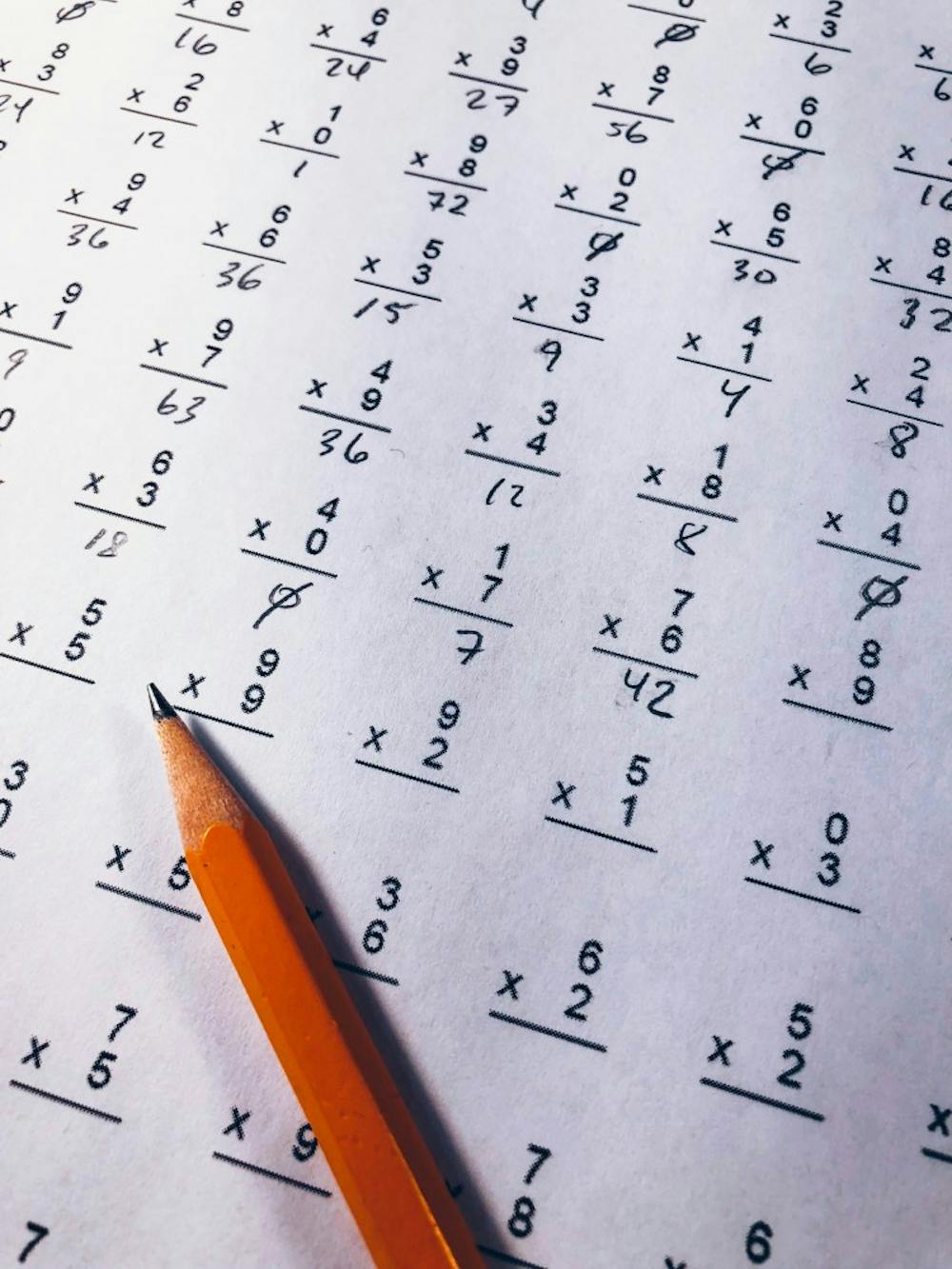As November comes to a close, students are met with the looming threat of final exams and projects. These can be stressful, especially in those classes you’re struggling in and required to pass for your major.
The amount of pressure students feel the need to place on themselves when finals week rears its ugly head every year is, in all honesty, too extreme. The following are some myths surrounding finals preparation and why you shouldn’t be worried.
1. You’ll need to pull an all-nighter (or multiple) in order to pass your most difficult finals.

Photo by Victoria Heath on Unsplash.
The phenomenon of placing academics over physical health is one that has been over this generation since we first started taking tests, and it unfortunately has followed all of us into our college classrooms.
The truth is, it doesn’t matter how difficult a class or upcoming test will be. You should never feel the need to sacrifice your health and well being to receive a good grade. Instead, in the days leading up to your final, study the material you feel least comfortable with for a few hours a day. Revisit that material closer to the day of the exam so it’s fresh in your mind.
Studies show that pulling an all-nighter before the day of an exam leads to poorer test scores due to lack of sleep. So, the night before your exam you’re most worried about, study in the evening and go to bed early. If you’re still nervous, go over the material again just before your exam.
2. Caffeine is your best friend during finals week.

Photo by Nathan Dumlao on Unsplash.
Once again, this ideology falls into the idea that academia is more important than physical health. While a cup of coffee once in a while is not technically harmful, several trips to Starbucks takes a toll on your physical health.
Caffeine is linked to mental illnesses like depression and anxiety. If you already suffer from either of those, too much caffeine during a stressful time will only exacerbate your negative feelings.
The best thing you can do for yourself is to know your limits. If you know that caffeine makes you jittery and lose focus, maybe cut back on the amount you’re consuming. Don’t use caffeine to stay up all night in order to study. If you absolutely need to have caffeine, make sure to stay hydrated and alternate your coffees, or energy drinks, with water.
3. If you fail a final, you fail the class.

Photo by Chris Liverani on Unsplash.
If you’ve done alright up until this point in any of your classes, a poor grade on the final exam should not be a huge detriment to your final grade. If you’re concerned about your performance in the class, now is the perfect time to talk to your professor about your grade.
Send your professor an email, attend their office hours, or even just speak to them after class. See if there is anything they can do to help you reach or maintain a passing grade, whether that be opportunities for extra credit or just giving you some reassurance.
If you still feel worry or guilt over the possibility of failing a class, know that failing one class is not the end of the world. It isn’t going to drastically impact your GPA or ruin your chances of graduating on time. Failing a class does not mean you are a failure as a student.
4. Studying in a group means you'll do better on an exam.

Photo by Alexis Brown on Unsplash.
This is both true and false. Studying in groups can be incredibly helpful, especially studying with other people in your class. You can answer each other’s questions, fill out study guides together, and complain about the class with people who understand exactly what you’re going through.
Although group studying is appealing to some, it’s important to recognize that everyone studies differently.
Some people study really well in groups and others get too distracted. Find out what works best for you. Do you find more success when you go over material by yourself or with others? In a quiet environment or while listening to something? With snacks or a drink?
Everyone’s study habits look different. There is no right or wrong way to study, as long as you are going over the material and learning.
5. During finals week, you have to constantly study if you want to do well.

Photo by Kinga Cichewicz on Unsplash.
A recurring theme throughout this list is knowing your limits. It’s common knowledge you should study for your finals, but should every minute be filled with going over notes and reading textbooks? Of course not. The best studying happens in small doses and over time. Don’t cram, but don’t put all your energy into studying.
Even more so, don’t feel guilty about the time you spend doing other things. We’re all human. We need breaks, time to relax. After studying for an hour or two, allow yourself a reward like an episode of a TV show you like, or scrolling through social media.
If you do not feel mentally “all there” to study, give yourself time to recover with whatever form of self-care helps you best. For me, self-care is cleaning up my apartment and cooking myself something healthy to eat. Like study habits, self-care looks different for everyone. Remember to care for yourself physically and mentally, and that academics should not take precedence over those things.
Above all, know that your grades do not define you.








